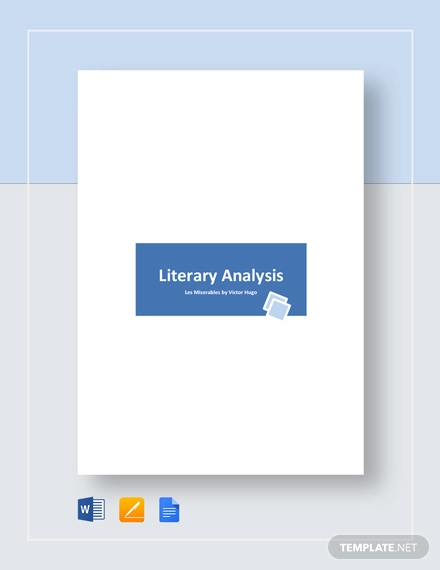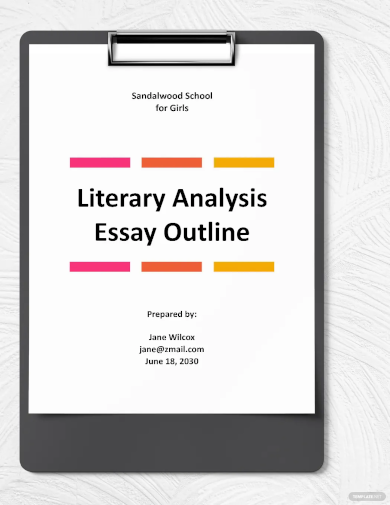30+ Literary Analysis Examples to Download
Most of us during our high school and college days have probably spent hundreds of hours writing essays and other papers and reports. Some of us may have written technical analysis. Writing is not only limited to those who enrol in arts and communication courses. It is practised in almost all fields of studies.
Writing an simple analysis is a complex task. It requires patience and diligence to finish. However, writing a literary analysis could take more than that. Keen attention to details and critical thinking is to be incorporated when writing a literary analysis.
1. Literary Analysis Example
2. Literary Analysis Essay Outline Example
3. Literary Analysis Thesis Statement Example
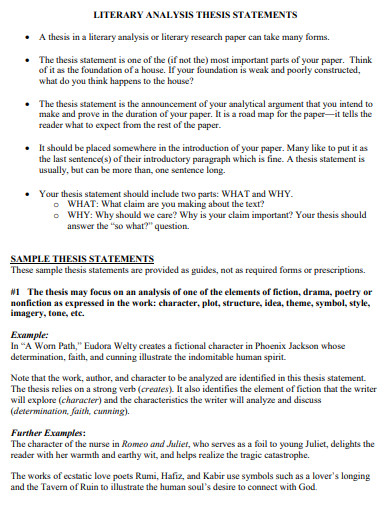
bua.edu
4. Literary Analysis Graphic Organizer Example
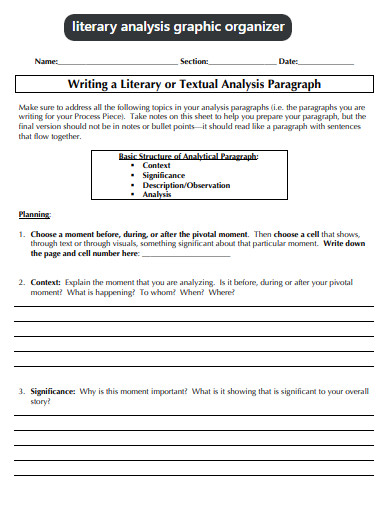
wpvip.edutopia.org
5. MLA Format Literary Analysis Example
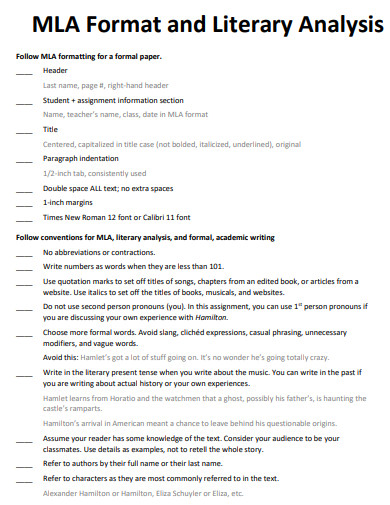
oh02000847.schoolwires.net
5. Literary Analysis Sample Paper Example
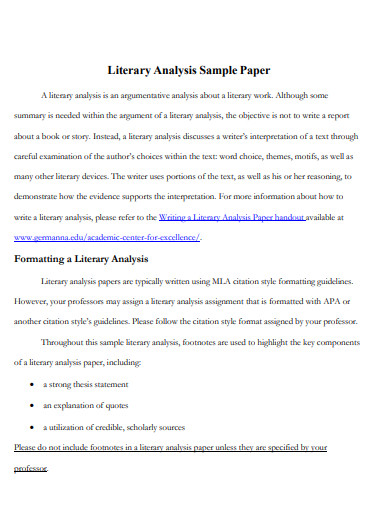
germanna.edu
6. Writing Literary Analysis Example
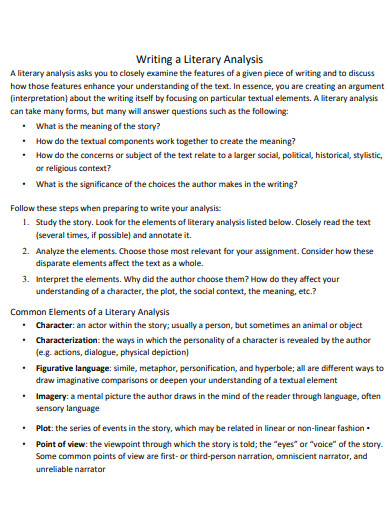
ivcc.edu
7. Introduction to Literary Analysis Example
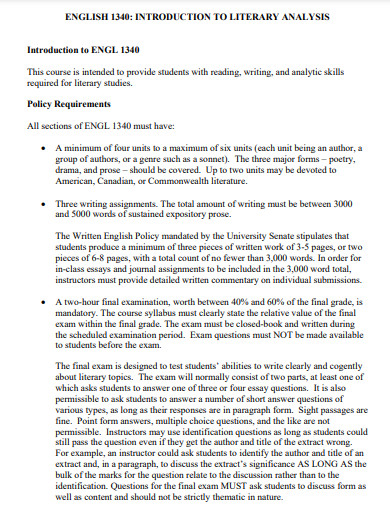
umanitoba.ca
8. Literary Analysis Body Paragraph Example
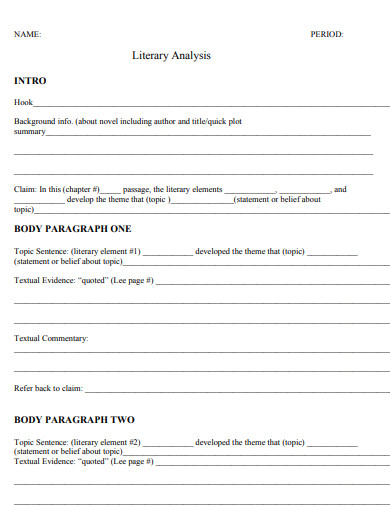
campbellhigh.org
9. Literary Analysis Essay Example
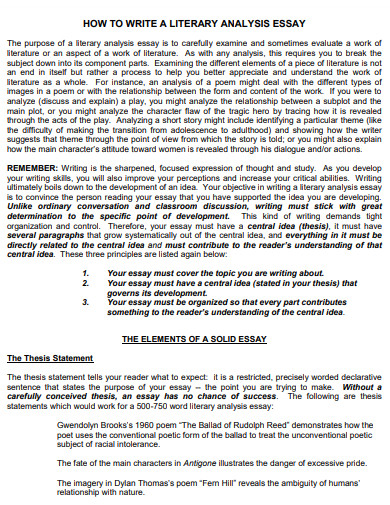
bucks.edu
10. Middle School Literary Analysis Example
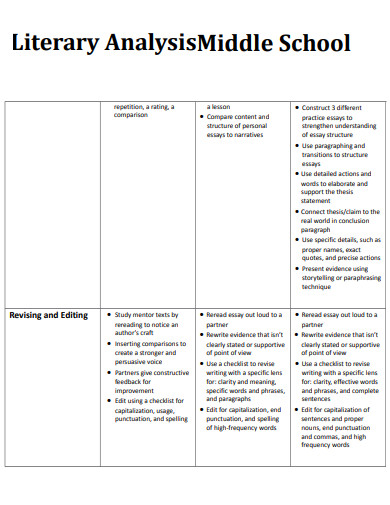
maisaresourcesgrade7.weebly.com
11. Literary Analysis Rubric Example
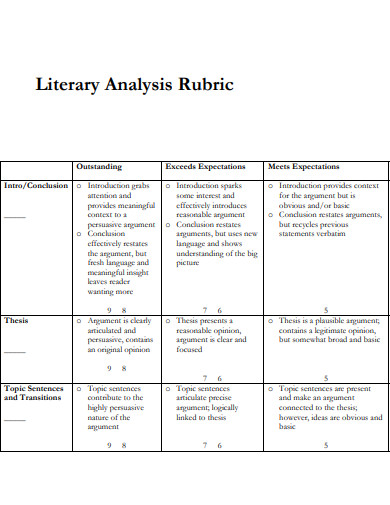
edutopia.org
12. Literary Analysis Topic Sentence Example
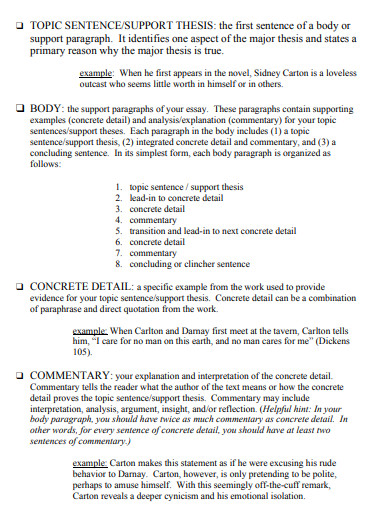
cusd80.com
13. Literary Analysis High School Example
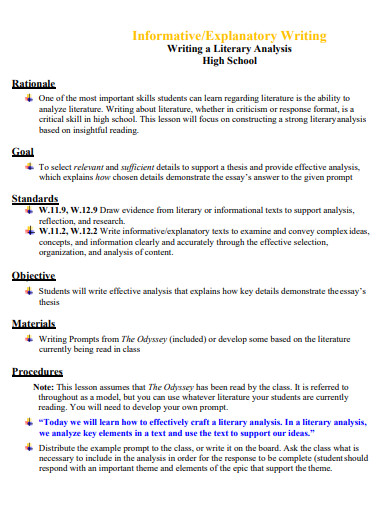
assets.website-files.com
14. Literary Analysis Poem Example
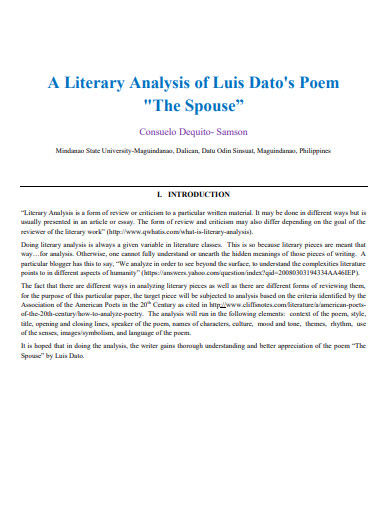
paperpublications.org
15. Literary Analysis Conclusion Example
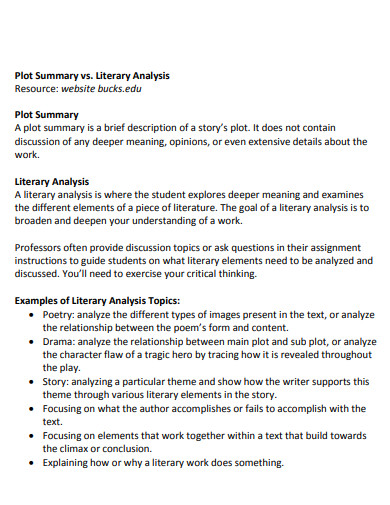
apsu.edu
16. Literary Critical Analysis
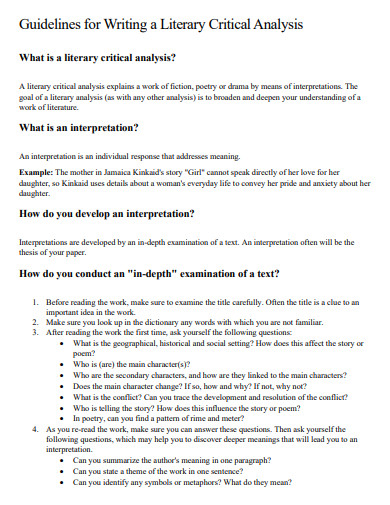
sierracollege.edu
17. Literature and Literary Analysis
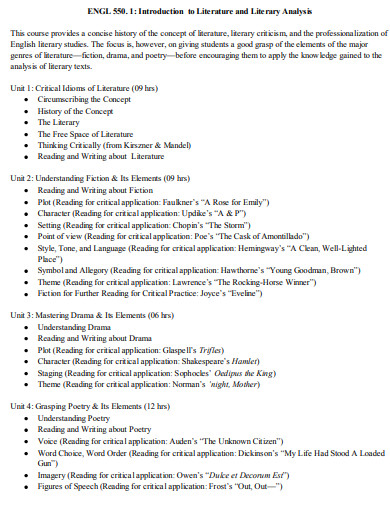
collegesnepal.com
18. 6th Grade Literary Analysis Example

sksschool.org
19. Literary Analysis Planning Example
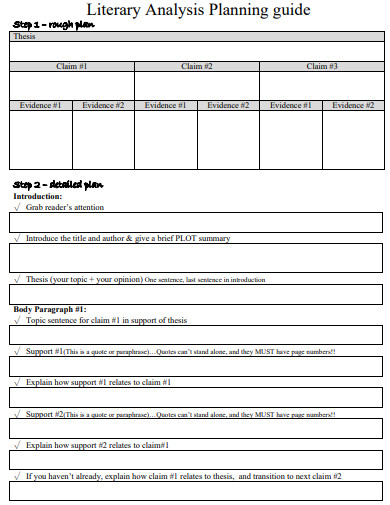
dvusd.org
20. Literary Analysis Brief Example
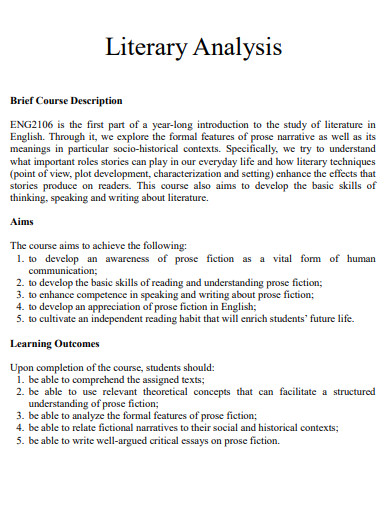
ln.edu.hk
21. Elements of Literary Analysis Example
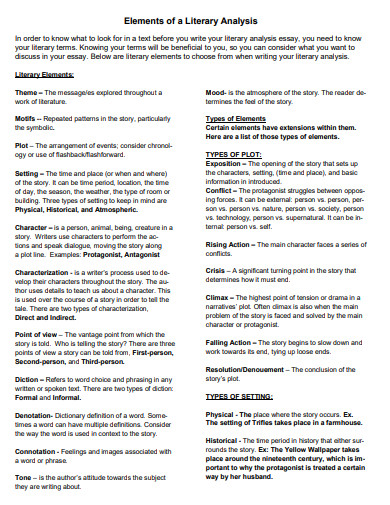
alamo.edu
22. Literary Analysis Thesis Example
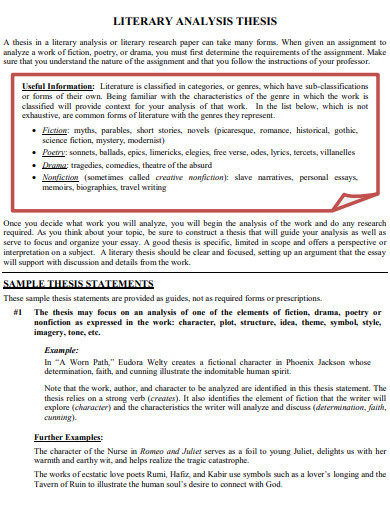
rlhs.trusd.net
23. Effective Paragraph Literary Analysis Example
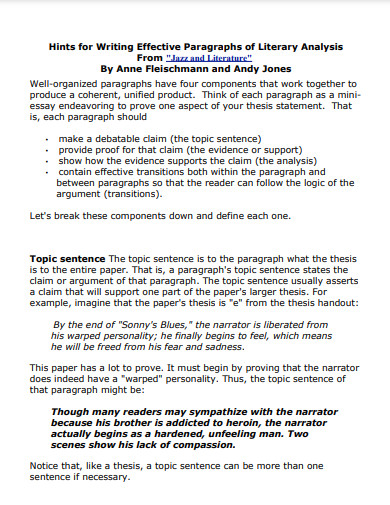
fcusd.org
24. Literary Analysis Research Paper Example
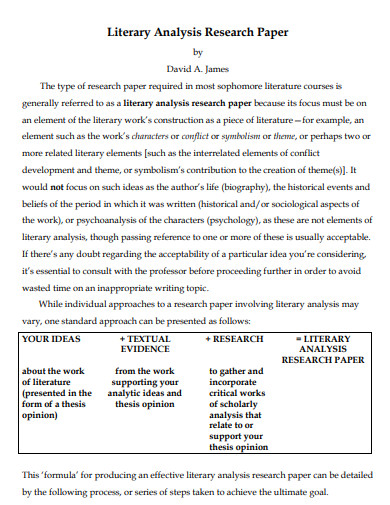
learning.hccs.edu
25. Creating Literary Analysis Example
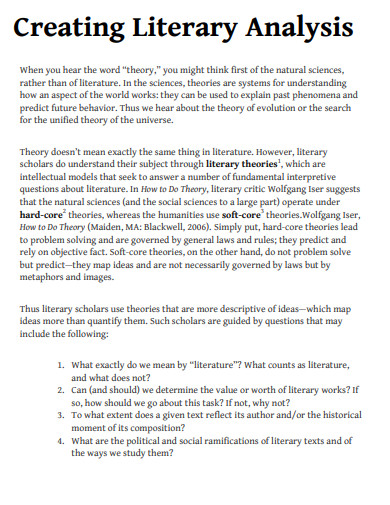
2012books.lardbucket.org
26. Literary Analysis Sentence Example
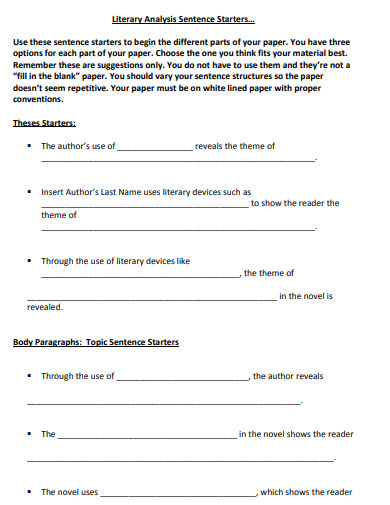
dl.icdst.org
27. Literary Analysis Worksheet Example
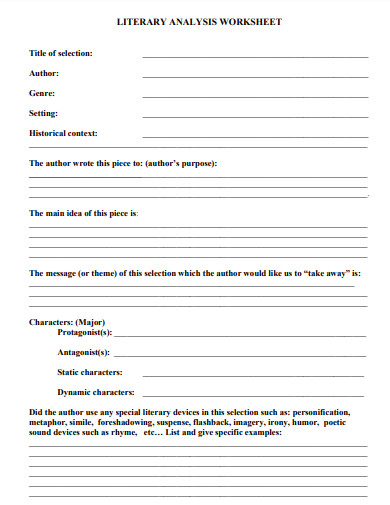
chino.k12.ca.us
28. Literary Analysis Observation Chart Example
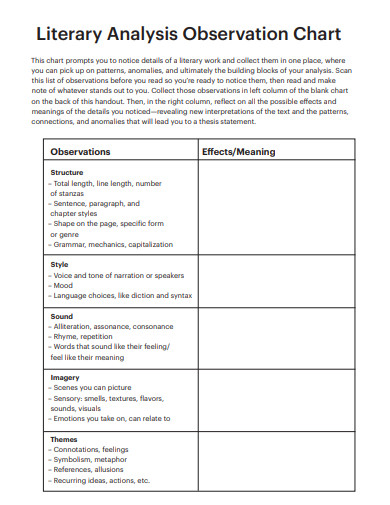
static1.squarespace.com
29. Basic Literary Analysis Example
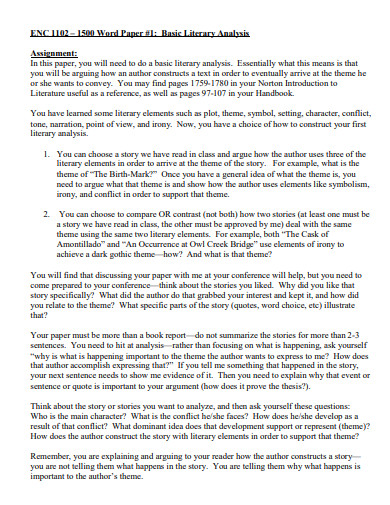
frontdoor.valenciacollege.edu
30. Language of Literary Analysis Example
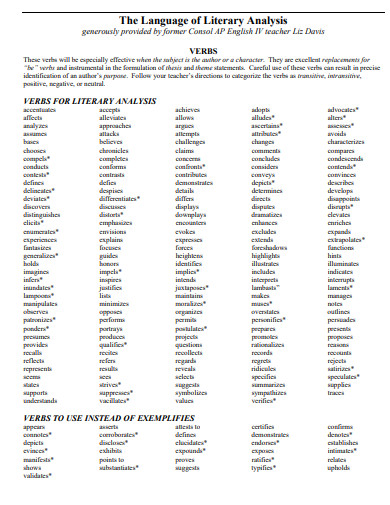
alwayslearningweb.files.wordpress.com
31. General Literary Analysis Example
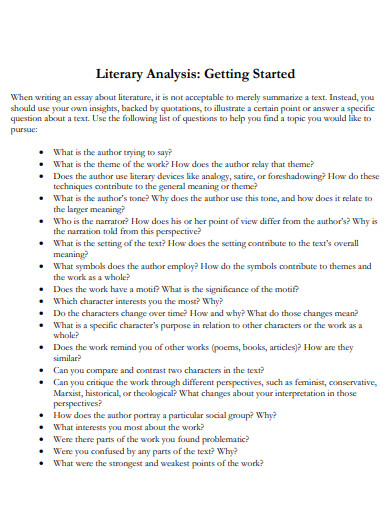
wm.edu
What Is Literary Analysis?
A literary analysis is a thorough examination of a literary work. It is the detailed, written comments of an author regarding a piece of literature. Just like any need analysis, it discusses all important elements including the text structure, style, and context.
Literary analyses highlight an important fact or facet of a book, a poem, or a movie. They also use it to analyze and criticize a literary work for the sake of argument and educational discussion. It is an interpretation of an author which could bring out a positive or negative outcome.
How to Write a Literary Analysis
Writing an analysis requires preparation and a broad understanding of the topic (in this case you may benefit from formal analysis Examples examples). Here are simple steps to write a literary analysis.
Step 1: Create a Hypothesis.
Think of a topic and your points to guide your argument. It should be a brief statement analysis of what you want to accomplish and why you need to do it. Include this in your introduction paragraph.
Step 2: Build Your Arguments.
After a brief introduction, you need to write the next paragraphs as your arguments. This should be the body of your analysis. State strong and compelling points.
Step 3: Draw a Conclusion.
It is recommended that you write your closing conclusion comments here. It needs to provide your concluding interpretations or arguments on the subject matter.
Step 4: Always do a Research.
It is imperative that you do thorough research on the topic before writing. In addition, quote your sources so readers will know that your facts are legitimate.
FAQs
What is the purpose of literary analysis?
The purpose of literary analysis is to deepen one’s understanding and appreciation of a work of literature. By examining the various elements of a work, such as its plot, characterization, language, and themes, readers can gain insights into the author’s message and the significance of the work within its cultural and historical context.
What are some common literary devices used in analysis?
Common literary devices used in analysis include metaphor, simile, imagery, symbolism, foreshadowing, irony, and allusion. These devices can be used to create a range of effects, such as emphasizing a theme, creating a mood, or developing a character.
What are some tips for effective literary analysis?
Some tips for effective literary analysis include reading the work multiple times to gain a deeper understanding, focusing on the specific elements of the work that are most relevant to your analysis, and using quotes and examples from the work to support your analysis. It can also be helpful to consider the historical and cultural context in which the work was created and to engage with other critical interpretations of the work.
In conclusion, a literary analysis essay allows readers to delve deeper into the meaning and significance of a work of literature. By examining the various literary devices used by the author and analyzing the themes and symbolism within the work, readers can gain a deeper appreciation for the work and its place within its cultural and historical context. Writing an effective literary analysis essay requires careful reading, a clear thesis statement, and strong evidence to support one’s analysis. With these tools, readers can develop a richer understanding of the complexities and nuances of the works of literature they encounter.



